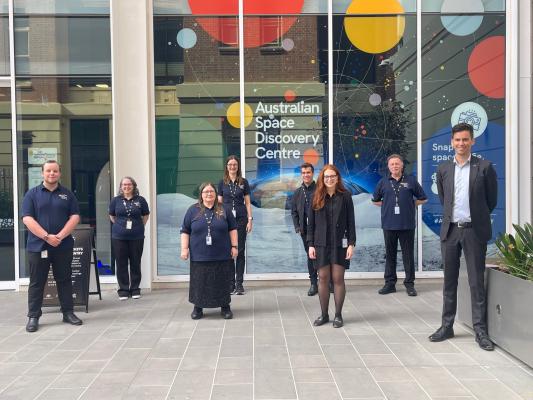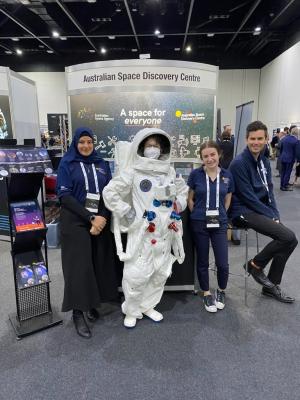Did you know Australia needs expert space educators to inspire the next generation of space workers?


The Rundown
What do space communicators and education outreach officers do?
Space communicators and education outreach officers help the general public and other audiences understand space science and the industry.
Ever since the first space exploration in the twentieth century, the world has wanted to know all about it. Space communicators and education outreach officers help the general public understand the science and technology behind the space industry. Their job is to highlight achievements in the industry, and inspire the next generation to join the industry.
Space communicators are storytellers, helping craft the narrative of a company, organisation, person or mission. Some are space museum tour leaders, others explain space-related topics by writing articles or participating in media interviews. They may even become the ‘face’ of an organisation, appearing in the media to talk about space news.
Education outreach officers plan and deliver educational event activities for school and higher education students. Events might be part of excursions that take place at a museum, or at a company or organisation’s premises. Alternatively, education outreach officers might bring learning materials to schools to deliver educational programs.
What you’ll need to know and do
In both roles, it helps to have a scientific background. Education outreach officers often also have teaching qualifications or experience. It is also common for people in these roles to also continue their research careers behind the scenes. This helps them keep their scientific knowledge up to date.
Your study pathway
Degrees in the following study areas may be relevant to becoming a space communicator or education outreach officer:
- education/teaching
- communications
- media studies
- marketing
- public relations.
Almost all universities in Australia offer degrees in these areas. Visit individual university websites for more information.
